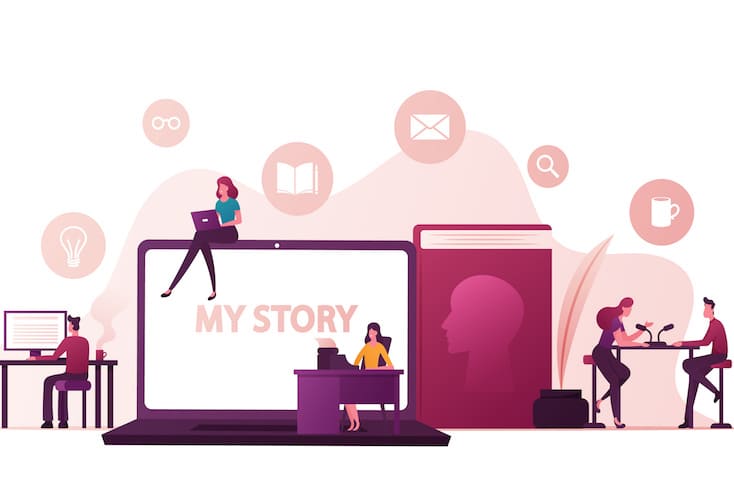April 12, 2021
By Katherine Ponte, JD, MBA, CPRP

Our lived experience matters. The best decisions concerning our lives are informed by our own voices. And the mental health community is diverse, so there is value in all our individual experiences.
Sharing can help further awareness and understanding, foster empathy and compassion toward people with mental illness.
I came out about my lived experience primarily because it freed me of stigma’s grip. I did so, even though people who experience psychosis are sometimes the most stigmatized. I set aside my fears of stigma, which is the key reason people are reluctant to come out, and took a leap of faith. I appreciate that it’s not for everyone, but for me, it was critical to starting my recovery journey. I’ve never looked back.
I also quickly learned that sharing my story could help others see the possibility and benefits of sharing their stories.
There are many benefits to coming out and sharing your experiences:
There may be many pleasant surprises for you, too. You may learn that not as many people as you think stigmatize people with mental illness. Many are empathetic, compassionate and understanding. Some care for friends or loved ones with mental illness. And some may even have mental illness themselves.
You also have to be prepared for the worst case scenario, which may result in any of the following:
The key takeaway is that you must be careful about your decision to come out. Never feel pressured as you are entitled to privacy, and the decision to come out is irreversible.
If you do plan to come out, you can minimize the possible adverse consequences through preparation. Carefully consider whom you will come out to and in what order. If you come out to close friends and family first, they may be able to support you if you decide to come out to others.
I was willing to come out despite possible adverse consequences, some of which I did experience, especially some lost friendships. I came to the point where I realized that caring too much about what other people thought of me, meant caring too little about me. I wish I had come out sooner.
I dreaded the thought of having all those one-on-one conversations, so I came out in a Facebook post and then in a video I made about my recovery journey. And have also shared since then in many blog posts. There’s little I have not disclosed.
I’ve learned a lot in my recovery journey, and if sharing means others can avoid my mistakes, reach recovery more easily and quickly than I did, it’s worth every negative consequence. I’ve received tremendous support from many for sharing my experiences, which has deeply moved and touched me.
There are many ways you can share your experiences publicly:
Coming out and sharing my lived experience has been tremendously rewarding. It has been surprising to learn how many people really care about what I have to share. For a long time, I lamented that nobody other than my peers seemed to understand me. But how could they if I wasn’t sharing my experiences?
Understanding starts with us. We can’t let others tell our story, because all too often, they get it wrong. It’s our narrative that can lead to real change. Don’t let stigma silence your voice. We all need to hear it.
Author’s Note: Professor Davidson, I owe you a debt of gratitude for the tremendous support and encouragement you have provided me on my recovery journey. You’ve helped me believe that people really do care about our lived experience, that our voice matters and can make a difference, that we have the undeniable right to lead conversations on our lives. Your rigorous evidence-based academic work over a career spanning more than 30 years and more than 450 papers amplifies our voices, makes people listen and take action. Your steadfast heartfelt commitment to proving the possibilities of living with mental illness empowers so many and gives us much needed hope. I am truly honored and privileged to have your support.
Katherine Ponte is happily living in recovery from severe bipolar I disorder. She’s the Founder of ForLikeMinds’ mental illness peer support community, BipolarThriving: Recovery Coaching and Psych Ward Greeting Cards. Katherine is also a faculty member of the Yale University Program for Recovery and Community Health and has authored ForLikeMinds: Mental Illness Recovery Insights.
We’re always accepting submissions to the NAMI Blog! We feature the latest research, stories of recovery, ways to end stigma and strategies for living well with mental illness. Most importantly: We feature your voices.
LEARN MORENAMI HelpLine is available M-F, 10 a.m. – 10 p.m. ET. Call 800-950-6264,
text “NAMI” to 62640, or chat online. In a crisis, call or text 988 (24/7).